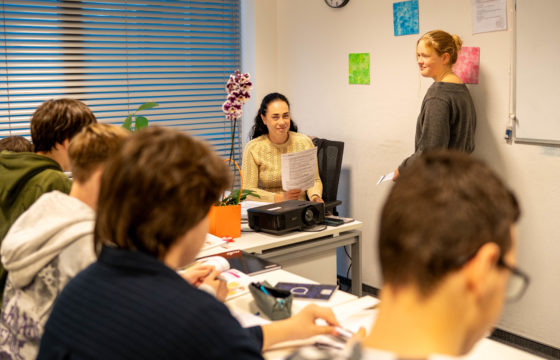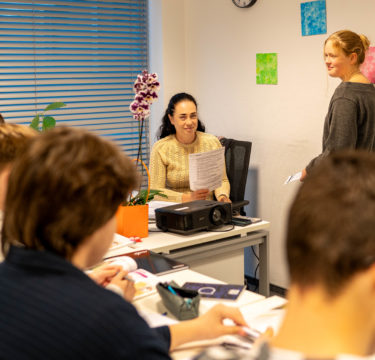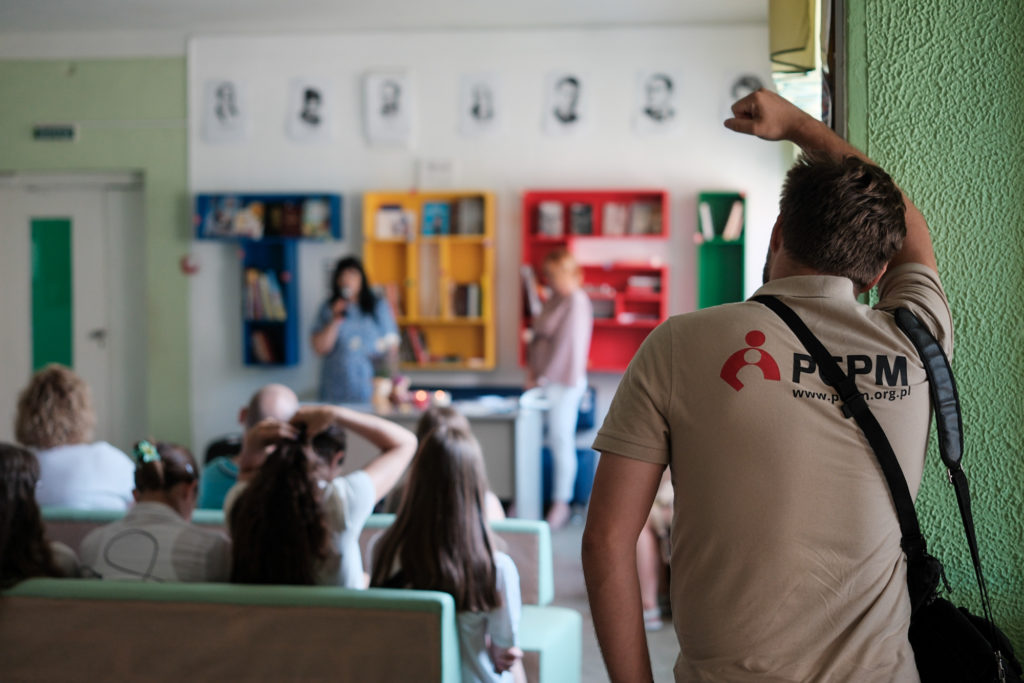We are lacking specialists. Will Ukrainian professionals help the Polish economy?


Teachers, doctors, engineers, nurses, and caregivers for older people have been in short supply in the Polish labor market for years. Qualified workers from Ukraine could partially solve this problem, but they must first navigate a challenging diploma recognition and qualification validation process. The Polish Center for International Aid assists them in this process.
The presence of hundreds of thousands of adult Ukrainian citizens in Poland presents both a social challenge and a significant opportunity for the development of our economy and for building long-term demographic resilience in the Polish labor market.
A key element of this process is enabling Ukrainians to effectively enter the job market and practice their professions according to their education. Many war refugees, as well as earlier economic migrants, begin their lives in Poland by working below their qualifications—not only due to the need for immediate employment but also because of bureaucratic hurdles.

Meanwhile, the Polish labor market, and more broadly, the Polish economy, has been struggling with a shortage of workers in so-called deficit professions for years. According to this year’s “Barometer of Professions,” which identifies demand for specific professions, 29 out of 168 professions can be considered deficit professions, with 13 requiring high qualifications.
As Dr. Katarzyna Dębkowska, head of the economic foresight team at the Polish Economic Institute, notes, among the deficit professions requiring high qualifications are medical professions—doctors, nurses, midwives, physiotherapists, and massage therapists—as well as caregivers for the older people and those with disabilities.
— The lack of significant changes in the lists of deficit professions over the past few years may indicate that shortages of specific workers are structural and stem from ongoing unfavorable demographic, educational, and training conditions — explains Dębkowska.
For the Polish economy and society to fully benefit from the experience, knowledge, and qualifications of workers from Ukraine, an efficient process for the recognition of their diplomas and access to retraining courses is necessary.
PCPM Program Supports Teachers
An expert from the Polish Economic Institute adds that despite the structural deficit, only 3% of all documents legalizing the employment of foreigners—such as work permits, declarations, and notifications of assigning work to Ukrainian citizens—pertained to professions requiring high qualifications in 2023.

— This low percentage may result from the requirement for diploma recognition and a communicative level of Polish language proficiency. This can significantly hinder Ukrainians from taking jobs matching their qualifications, as pointed out by Dębkowska.
The Polish Center for International Aid (PCPM) foundation assists workers from Eastern Europe with processes related to diploma recognition and upgrading qualifications through retraining courses.
— Our project mainly concerns the recognition of diplomas for teachers from Ukraine who are already working in Polish schools but in non-teaching positions—as teacher assistants or intercultural assistants. However, with diploma recognition, they can work according to their education as teachers — explains Ewa Grodek from PCPM, project coordinator.
She emphasizes that most recognitions involve English language teachers and other foreign languages, as well as those teaching history, biology, mathematics, physics, music, and physical education.
The PCPM program supports teachers and representatives of other key professions, such as doctors, nurses, engineers, and IT specialists. It includes organizing supplementary courses, preparing for diploma recognition exams, and assisting in accepting professional qualifications obtained outside the European Union.
As representatives of the PCPM foundation note, due to differences between the education systems in Ukraine and Poland, discrepancies in some professional qualifications are significant enough that diploma recognition is impossible.
— In such cases, a solution is to supplement education with additional postgraduate studies to obtain the required pedagogical hours. We also assist in navigating pedagogical courses and acquiring teaching credentials and qualifications, as Grodek indicates.
Benefits for the Polish Economy and Society
Ukrainian professionals who validate their diplomas can add significant value to the Polish economy. This applies to teachers and the so-called white-collar workers, meaning employees from the healthcare sector. Like many other developed countries, Poland faces a shortage of doctors, nurses, midwives, and hospital staff. Upon meeting formal requirements and enhancing their education, Ukrainian medical professionals and white-collar workers can play a crucial role in alleviating this crisis.
Dębkowska from the Polish Economic Institute emphasizes that the shortage of working-age employees, including those with high qualifications, will deepen in Poland due to an aging society.
— According to forecasts from the European Statistical Office, by 2050, the population of the 27 EU countries will increase by 3.6%, while Poland’s population will decrease by nearly 10%, to about 34.7 million. By 2050, for every 100 working-age individuals in Poland, there will be 53 individuals over 65, compared to 50 in the entire EU — cites the economist.— She adds that an aging society will also require more healthcare and social care workers to meet the needs for qualified care for the growing group of seniors.
Another area where Ukrainian specialists can contribute to the development of the Polish economy is the technology sector. Poland has become a regional IT hub in recent years, and demand for programmers and engineers continues to rise. Many Ukrainians and Belarusians come to Poland with rich experience and education in these fields. Assistance with diploma recognition and access to adaptation courses will facilitate their rapid integration into the Polish job market and foster the growth of startups.
Retraining Courses as a Tool for Integration
The retraining courses organized by the PCPM foundation serve as a springboard for professional development and a key to integration in Poland. In addition to learning new skills, participants can establish connections with Polish colleagues in their field and familiarize themselves with local realities and work culture. This helps build mutual trust and eliminate social barriers.
As Ewa Grodek from PCPM states, school directors indicate that language issues are often challenging when collaborating with teaching staff from Ukraine.
— Therefore, PCPM funds intensive Polish language courses supplemented by specialized training in subject-specific vocabulary. Communication among teachers is essential for reaching students, which positively impacts the integration of Ukrainian children into Polish schools — points out Grodek.
By the end of December, 450 Ukrainians had benefited from the program, with 342 already working in Polish schools. Additionally, PCPM funded postgraduate studies for 150 individuals, while 140 completed the diploma recognition process; for another 100 individuals, this process is ongoing.